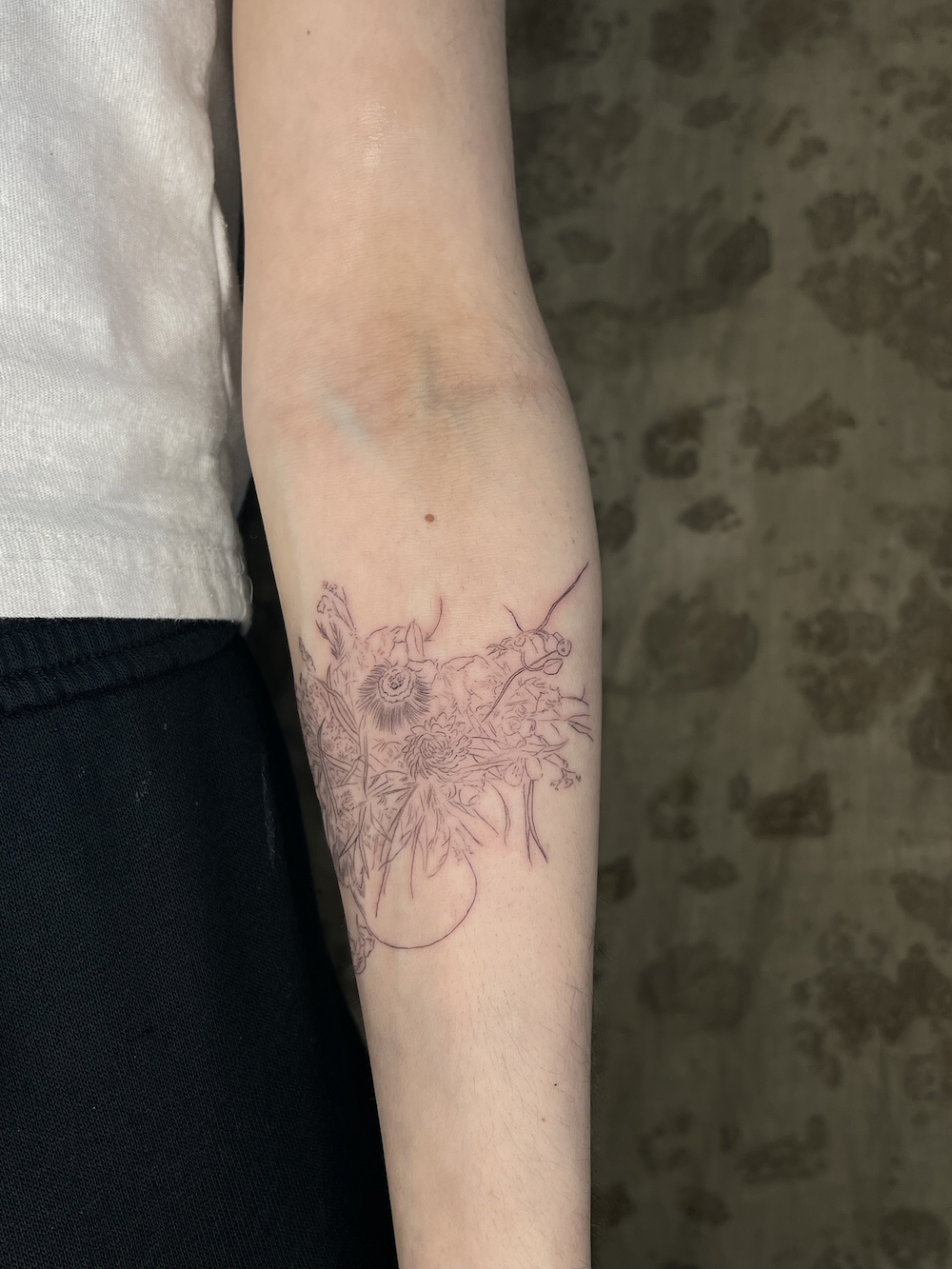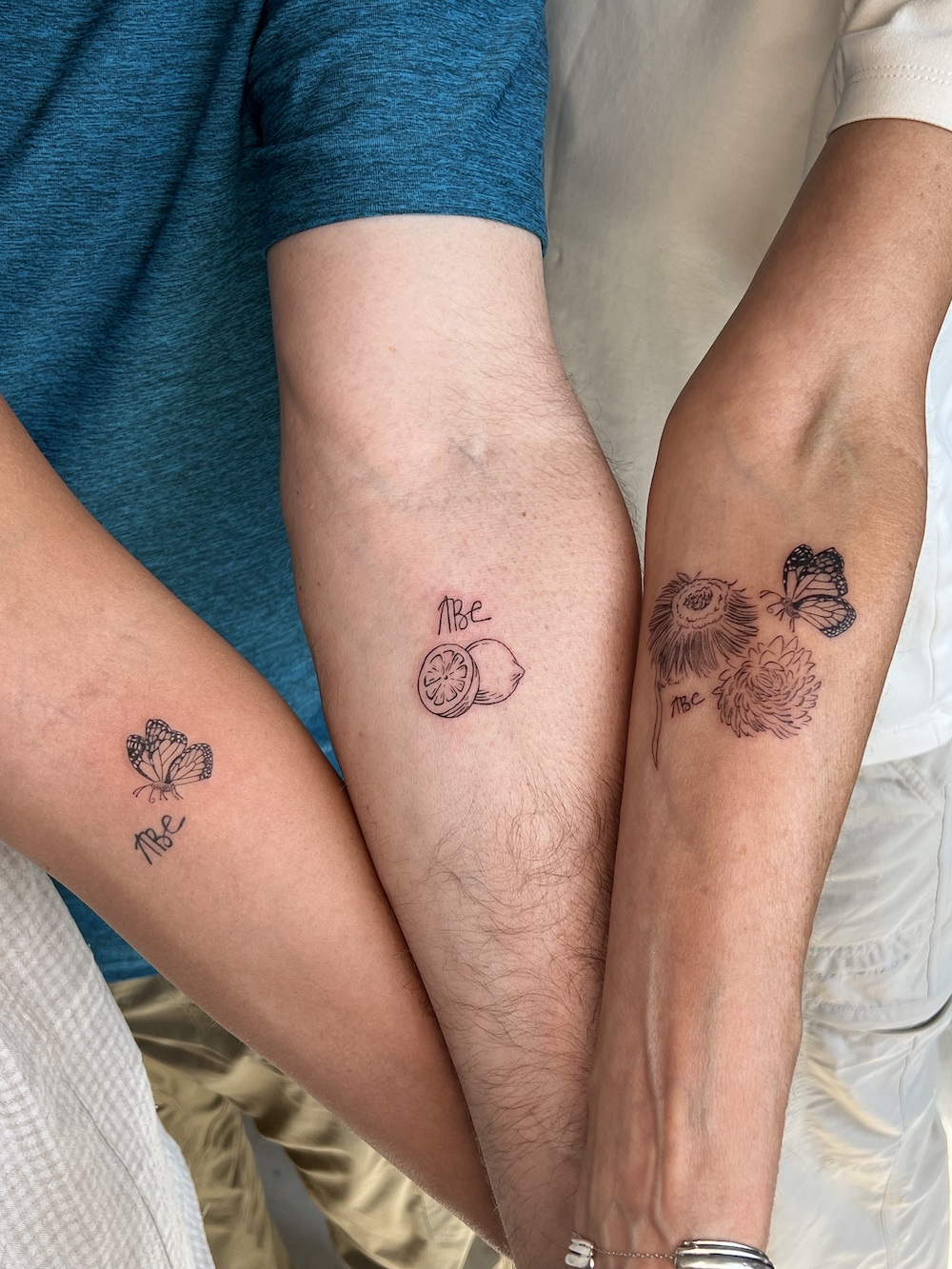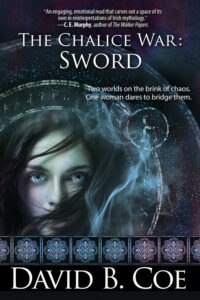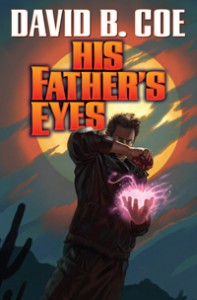While our older daughter, Alex, was sick with cancer, she continued to live her life with passion and exuberance, in defiance of the disease, the treatments, the fear, the injustice of a cruel and arbitrary illness. She traveled, she spent time with friends, she treated herself to new clothes, she went to concerts and restaurants and parties, she worked out. And she challenged herself to do new things.
Early on, soon after her diagnosis, a dear friend gave her a lovely bouquet of wildflowers that she kept in a vase in her apartment. Eventually, of course, the flowers faded and then dried, but they never lost their delicate beauty, and they continued to mean the world to her. She kept them in the same vase, refusing to get rid of them. I think in some way they became a talisman for her. As long as those fragile blooms remained intact, she would be all right.
 Somewhere along the way, as her battle went on, Alex decided she wanted to have the image of those blooms tattooed on her arm. She turned to a friend from NYU who had become an accomplished tattoo artist. This friend, Ally Zhou, specializes in fine line work, and was the ideal person to render the precise details of the dried bouquet. The result was a gorgeous tattoo that Alex bore proudly for the rest of her too-short life.
Somewhere along the way, as her battle went on, Alex decided she wanted to have the image of those blooms tattooed on her arm. She turned to a friend from NYU who had become an accomplished tattoo artist. This friend, Ally Zhou, specializes in fine line work, and was the ideal person to render the precise details of the dried bouquet. The result was a gorgeous tattoo that Alex bore proudly for the rest of her too-short life.
After Alex’s death, Nancy, Erin, and I decided that we wanted to honor Alex by getting tattoos from Ally as well. Ally had already designed a couple for Alex’s friends: a copy of Alex’s nickname signature — “ABC” — and a small image of lemons, which had a special meaning for Alex during her illness — like Beyoncé, life had dealt her lemons and she was determined to make lemonade.
Last week, the three of us were in New York for the wedding of my nephew and niece-in-law (I know that’s not a thing, but it really, really ought to be . . .). A couple of days after the wedding, we went down to Brooklyn for a day, to the studio collective where Ally works. It’s called Macondo, and it’s a very cool place. We had contacted Ally ahead of time, and they set aside much of the afternoon for the three of us.
I should say here that while Alex and Erin had long talked about getting tattoos, Nancy and I never have. If not for Alex and her ordeal, we never would have even considered doing this. But now it felt like an imperative, something we all needed to do. And so Nancy got a set of blooms based on Alex’s bouquet, and added to it a small butterfly that she (Nancy) drew, and a small version of Alex’s “ABC.” Erin added Nancy’s butterfly to the “ABC” she’d gotten at Alex’s memorial in NYC back in October. And I got the “ABC” and the lemons.
 I know there are many of you reading this for whom a small tattoo is no big deal. You have sleeves or extensive back pieces or whatever. I think that’s great. But as I say, this was something Nancy and I had never intended to do. It felt momentous, like a ritual of sorts, a way of alchemizing our grief into something physical and shared and public, something that links us to one another and to Alex. I love my new tattoo, for what it means as well as for how it looks.
I know there are many of you reading this for whom a small tattoo is no big deal. You have sleeves or extensive back pieces or whatever. I think that’s great. But as I say, this was something Nancy and I had never intended to do. It felt momentous, like a ritual of sorts, a way of alchemizing our grief into something physical and shared and public, something that links us to one another and to Alex. I love my new tattoo, for what it means as well as for how it looks.
Did it hurt? Well, yeah, a little. Tattoo artists use needles, you know. While lying on the table, I gained a healthy respect for those I mentioned earlier who have extensive art all over their bodies. I’m not sure I could do that. But Ally has a light hand and a wonderfully gentle and supportive manner. It was a good experience for all of us.
Our darling girl is gone. Nothing can bring her back. But, strange as it seems, I feel a bit closer to her now. To my mind, our tattoos are yet another affirmation of our family connection, which transcends all.
Have a great week.









 And in part, this is the fault of professionals like me, who talk about our work habits and, perhaps, create unrealistic expectations that writers with less experience then apply to themselves. I write full time. I demand of myself that I write 2,000 words per day. I am asked often how long it takes me to write a book, and the honest answer is that it takes me about three months, which is pretty quick, I know. Writers who are at the outsets of their careers should not necessarily expect to do the same.
And in part, this is the fault of professionals like me, who talk about our work habits and, perhaps, create unrealistic expectations that writers with less experience then apply to themselves. I write full time. I demand of myself that I write 2,000 words per day. I am asked often how long it takes me to write a book, and the honest answer is that it takes me about three months, which is pretty quick, I know. Writers who are at the outsets of their careers should not necessarily expect to do the same. We’ll begin with the assumption that the book we’re writing will come in at around 100,000 words, which is the approximate length of most of the Thieftaker books, the Chalice War books, and the Fearsson books. Epic fantasies tend to be somewhat longer; YAs tend to be shorter. But 100K is a good middle ground.
We’ll begin with the assumption that the book we’re writing will come in at around 100,000 words, which is the approximate length of most of the Thieftaker books, the Chalice War books, and the Fearsson books. Epic fantasies tend to be somewhat longer; YAs tend to be shorter. But 100K is a good middle ground. Feeling more ambitious? Say we can write for ninety minutes each weekday, and can manage to average 500 words a day, while taking our weekends off to recharge. Well, now we’re writing 2,500 words per week, and that novel will be done in less than nine months. Willing to write on weekends, too? Now we’re down to seven months.
Feeling more ambitious? Say we can write for ninety minutes each weekday, and can manage to average 500 words a day, while taking our weekends off to recharge. Well, now we’re writing 2,500 words per week, and that novel will be done in less than nine months. Willing to write on weekends, too? Now we’re down to seven months.